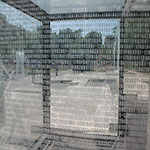Euroacademia Conferences
 Europe Inside-Out: Europe and Europeanness Exposed to Plural Observers (9th Edition) April 24 - 25, 2020
Europe Inside-Out: Europe and Europeanness Exposed to Plural Observers (9th Edition) April 24 - 25, 2020 Identities and Identifications: Politicized Uses of Collective Identities (9th Edition) June 12 - 13, 2020
Identities and Identifications: Politicized Uses of Collective Identities (9th Edition) June 12 - 13, 2020 8th Forum of Critical Studies: Asking Big Questions Again January 24 - 25, 2020
8th Forum of Critical Studies: Asking Big Questions Again January 24 - 25, 2020 Re-Inventing Eastern Europe (7th Edition) December 13 - 14, 2019
Re-Inventing Eastern Europe (7th Edition) December 13 - 14, 2019 The European Union and the Politicization of Europe (8th Edition) October 25 - 26, 2019
The European Union and the Politicization of Europe (8th Edition) October 25 - 26, 2019 Identities and Identifications: Politicized Uses of Collective Identities (8th Edition) June 28 - 29, 2019
Identities and Identifications: Politicized Uses of Collective Identities (8th Edition) June 28 - 29, 2019 The European Union and the Politicization of Europe (7th Edition) January 25 - 26, 2019
The European Union and the Politicization of Europe (7th Edition) January 25 - 26, 2019 7th Forum of Critical Studies: Asking Big Questions Again November 23 - 24, 2018
7th Forum of Critical Studies: Asking Big Questions Again November 23 - 24, 2018 Europe Inside-Out: Europe and Europeanness Exposed to Plural Observers (8th Edition) September 28 - 30, 2018
Europe Inside-Out: Europe and Europeanness Exposed to Plural Observers (8th Edition) September 28 - 30, 2018 Identities and Identifications: Politicized Uses of Collective Identities (7th Edition) June 14 - 15, 2018
Identities and Identifications: Politicized Uses of Collective Identities (7th Edition) June 14 - 15, 2018
Making it Medieval in Modern Catalonia: Escaping Sub-Nation Status by Creatively Employing a Proto-National Past
-
-

-
Presentation speakers
- Michael Vargas, Department of History, State University of New York at New Paltz
Abstract:
It is broadly known that Catalans want to distinguish themselves from Spain. What is less well understood is that contemporary Catalanism is firmly grounded in the artifacts, memories, and performance of a medieval past. Nationalism may be a nineteenth-century construct, but the histories and symbols that are its component parts have deeper histories: Barcelona’s prominence as the capital city of the Catalan people dates to the twelfth century. Catalonia has been part of the Spanish state since either 1412, 1486, or 1704, depending on one’s way of assessing the depth of political change in those times. The initiation date for Catalonia’s absorption into Spain is not as important as the desire among Catalans to bypass Spanish hegemony by using the medieval past in the construction of a present and future. The proposed paper will illustrate how Barcelonans and their Catalan compatriots live within a very active fabric of medieval and medievalizing architecture, social ritual, and cultural memory, a past, creatively imagined and reconstructed, explicitly used to promote action in the present. The planned presentation uses a lively multi-media demonstration with several carefully chosen examples to demonstrate how Catalans very purposefully expose their local and national identity to plural observers. An example of the intriguing complexities: Barcelonans actively draw upon their medieval past in the promotion of their energetic tourism economy, with great success. Catalans are calling for independence from Spain at the very moment when Barcelona is witnessing a tourist boom that puts it ahead of all European tourist destinations except London and Paris. Tourists see the phrase “Catalonia is not Spain,” rendered in English, in a broad range of settings from the walls and sidewalks of the unavoidable tourist traps to the graffiti scratched onto the stones along the trails of the Montserrat mountain range thirty miles from the capital.
-
Related Presentations

European Urban Image Construction in US Geography Textbooks and Multimedia Video Supplements
- Dmitrii Sidorov

The European Union Model for the Albanian Europeanization
- Irna Peshkepia
















